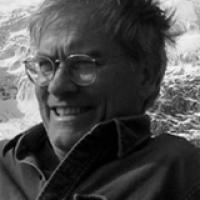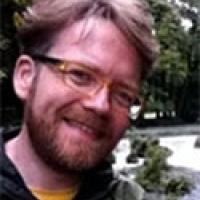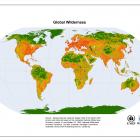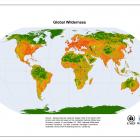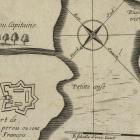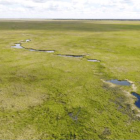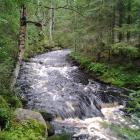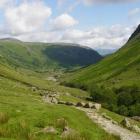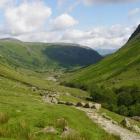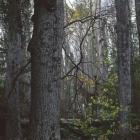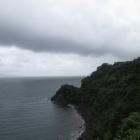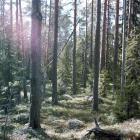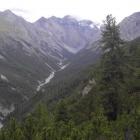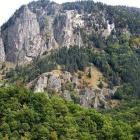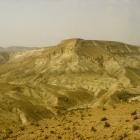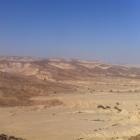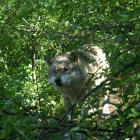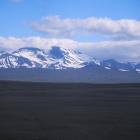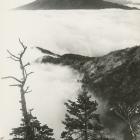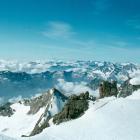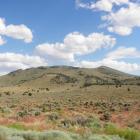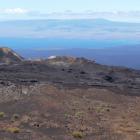About the Exhibition
If one wishes to save wilderness, or sets out to recreate or rewild it, what does this mean in places where people predominantly speak Dutch or Finnish or Greek or Nez Percé, and where wilderness does not exist—cannot exist—at least by the same name? What does it mean to protect or bring back any of the following … Wildernis, erämaa, ερημιά or titoqanót wétes?
What does wilderness mean in your language? Browse “Wilderness Babel” via the map.
Live map showing the location of the languages featured in the virtual exhibition. What does wilderness mean in your language? Browse “Wilderness Babel” via the map.
This exhibit collects wilderness-equivalent terms and describes them in a few short paragraphs, discussing how they may be similar to or different from the wilderness that native English speakers know and admire. The subtleties of meanings encompassed by the above terms, say, between human presence or absence, or between love and fear for the wild regions, is what we hope to explore. Our focus in these webpages is less the history of wilderness than the linguistics of wilderness, even though word meanings have their own histories. Even across the English-speaking countries, a reference to “wilderness” may evoke different feelings, images, and sounds. You may use the map to steer to your favorite language and see how it portrays wilderness, or offer your own comments and contributions there. We hope to expand our Wilderness Babel into a large and useful collection of ideas for land managers, policymakers, environmental theorists, outdoor recreators, and nature enthusiasts.
Contribute
Does wilderness exist in your linguistic region and what is the word for it? Or, if “wilderness” does not exist, what is the closest thing to it, and what is it called? What are the main characteristics of wilderness or its equivalent in your language? For example, how big is it, and what does it contain? What is your native language’s word for “wildlife”? Can human traces be found in this wilderness or near-wilderness? Show or describe some representative images of your wilderness equivalent. If humans live or visit here, what are their activities in it? Is your wilderness ordinarily warm or cold, rainy or snowy, serene or melodious? What smells come to mind? If possible, can you offer a short audio recording of this wilderness? Are there other sensory experiences or relevant weblinks that you can list to help portray your wilderness in a transnational and translingual context?
If you have answers to these questions, either for languages not yet represented on our map or as a response to already existing essays; if you want to say a word about how to avoid ruining this wilderness or how to maintain, protect, or restore it, please contact the editors and propose a new entry!
Coordinator and Editor
Marcus Hall has written about the wild, wilderness, and rewilding in his books, Earth Repair: A transatlantic history of environmental restoration (2005), and Restoration and History: The Search for a Usable Environmental Past (ed., 2010). In pursuing these and other research projects, he has now lived in Europe (mostly Italy and Switzerland) almost as many years as he has lived in the United States, where he has become even more appreciative of how environmental messages depend on the languages in which they are expressed. Trained in biology, history, and environmental studies (Stanford, BS; Wisconsin MA, PhD), he teaches at the University of Zurich’s Institute of Evolutionary Biology and Environmental Studies. His most recent book project is exploring the cultural history of parasites. Marcus wants to give special acknowledgment to all authors below, as well as to the whole team at Environment and Society Portal, especially to Wilko Graf von Hardenberg who offered numerous suggestions and improvements to this exhibit.
Wilko Graf von Hardenberg is a modern historian focusing on socio-political aspects of nature perception and management in Europe and the history of the environmental sciences. He holds a degree in history from the University of Torino, Italy, and a Ph.D. in geography from the University of Cambridge. He was a postdoc, funded by the Autonomous Province of Trento, at the University of Trento, Italy, a Carson Fellow at the Rachel Carson Center in Munich, Germany, and a Scholar-in-Residence at the Deutsches Museum in Munich, Germany. His most recent research projects focus on the history of nature conservation, management, and rhetoric in the Alps and on the development of the idea of mean sea-level.
Authors
- Catalan – Luis Fernández Fernández
- Chinese – Tina Tin
- Dutch – Britt Stikvoort
- English – Bill Adams
- English, Early – Raymond Chipeniuk
- Estonian – Kadri Tüür
- Filipino – Emily K. Brock
- Finnish – Mikko Saikku
- French – Philippe Forêt
- German – Patrick Kupper
- Greek – Iosif Botetzagias
- Hebrew, Ancient (Biblical wilderness) – Holmes Rolston
- Hebrew, Modern – Goldberg Livnat
- Hungarian – Péter Szabó
- Icelandic – Unnur Karlsdottir
- Italian – Luigi Piccioni
- Japanese – Natasha Yamamoto
- Nez Percè – Teresa Sabol Spezio
- Spanish, Latin American – María José Barragán Paladines
- Swedish – Lars Elenius
ISSN 2198-7696 Environment & Society Portal, Virtual Exhibitions

This work is licensed under a Creative Commons Attribution 4.0 International License 2020, 2013 the authors and the Rachel Carson Center for Environment and Society.
This refers only to the text and does not include any image rights. Please click on an image to view its individual rights status.
The Rachel Carson Center for Environment and Society in partnership with:

- Previous chapter
- Next chapter


